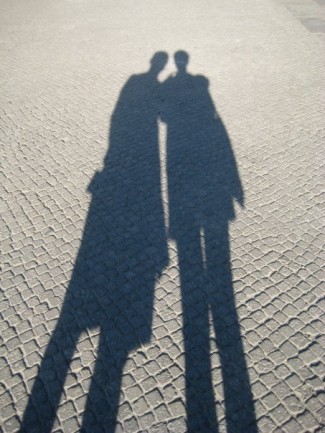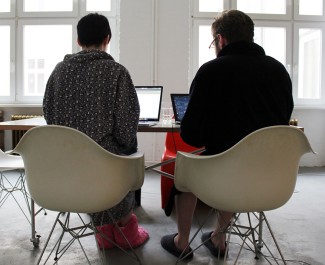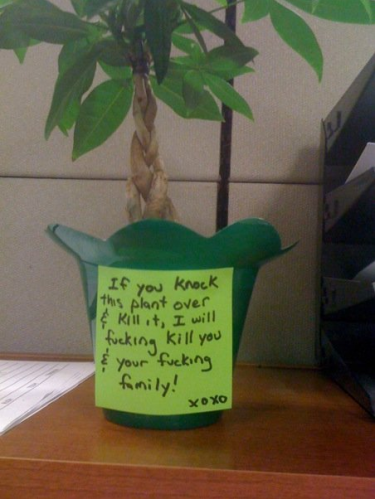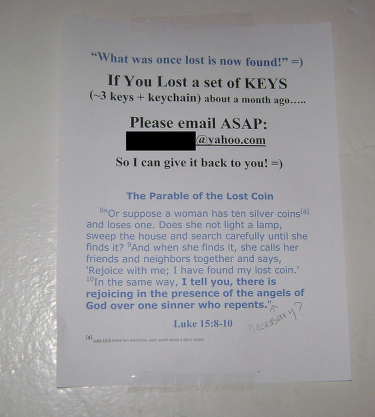Creative Migration, Expat Culture and Gentrification: An Interview with… Me!
by James Glazebrook
A little background: a student in Human Geography at Manchester, and fellow music nerd, Rich James (@iceheadache) decided to do a project on the recent creative migration to Berlin. So while his fellow second years were off investigating done-to-death topics, Rich was over here, interviewing expat artists, DJs and journalists from the city’s thriving music scene. I’ve cut out most of the industry-specific stuff, and my worst rambling, so hopefully what remains will be of interest to locals, wannabe Berliners and the curious alike.
What attracted you to Berlin?
In part, dance music. We first came over about five years ago and all that like electro-house stuff, like Get Physical, was just breaking. We’d just moved to London [from Newcastle] and liked the big city vibe but it was already getting a bit overwhelming. We thought Berlin was just like London, but with half the people and more space. We went clubbing and everyone was really nice and just there for the music, and there was room to breathe – unlike fabric.
And that same feeling permeated the rest of the city – bars and coffee shops, for example, locally owned, independent places where everyone’s super nice and welcoming. It just gives a different flavour to the city.
What’s special about Berlin?
Everything I’ve just described attracts a special kind of person. You don’t meet many Germans but if you do chances are they moved here, and they’re working in the creative industries or working five different random jobs. You meet a lot of expats but everyone has made the effort to move here because of a love for the city that we all share.
This amplifies the creative, independent feel of the place. Out of all the European capital cities I’ve been to, Berlin provides a special kind of the creative freedom. It’s not the freedom to get off your face, it’s the economic freedom to do the work you want to do.
In London you do a 9-5 job and have to commute to it and you have maybe three or four hours in the evening to do what you want to do. But here I can half the work I did back home and still pay the rent – and I can spend the rest of the time writing about music and blogging.
Do you feel you’re free to do your job without being career motivated, without the need to always make more money?
Totally. My wife and I do the same work we did in London but there’s less pressure. That’s partly because we’ve “opted out” of the career ladder – it’d be the same if we moved to Australia.
But it is partly the place as well. It’s simple economics – it’s cheap here because there’s astronomical unemployment. It’s only recently that creative industries have been growing and there aren’t really any other industries here. I’m sure there are people here with proper jobs, earning decent wages, leading normal lives, but if you want to be a banker, for example, you’re going be in Frankfurt.
So there is less emphasis on career, especially for who come from overseas and live in our isolated little bubble. Most of the people I know have a job and then something they do that they’re passionate about, none of whom you would call careerists.
You described living in a “bubble” – do you feel like you’ve been accepted into the broader Berlin society?
It feels like there are two different levels to living here. It’s really easy to come over and meet people who are also expats, and are very welcoming because they’re in the same boat – but they’re still on the outside fringes of society as a whole. The language barrier has a lot to do with that – a little German is enough to get by but you always feel like you’re on the outside.
There are a lot of people who revel in the whole expat culture, but I worry about not integrating. Every other week there’s news of citizens, especially in Kreuzberg, having meetings or protests about this “problem”. They talk about “party tourists”, especially the English and Swedes – who come over and just get wrecked and leave broken glass all over the streets. People like me and my friends aren’t part of that discussion… yet.
I’m here for the long term but I still feel like a tourist, just a long-term tourist – particularly because I don’t work in an office somewhere. I don’t know if it’s a problem but it feels like a problem to me, and it’s becoming an issue here. People are starting to weigh up the benefits in terms of the economy and marketing versus the social disruption that it causes.
We’re here because it’s cheap. You can get a big apartment and pay cheap rent, but it’s a lot to most Berliners – and what’s compounding the problem is that the landlords are taking the piss. We can accept that but in some areas it’s leading to the displacement of the existing population. Kreuzberg has pretty much been gentrified but I think in Neukölln a lot of Turkish families in particular are in danger of being pushed out.
I don’t want to be blasé but I think this is just what happens to cities. Back in London this has always happened, and it’s still happening. But because in Berlin this has only happened over the last 20 years, it’s been accelerated – it’s not like London where this has been happening since the industrial revolution. What’s uniquely Berlin about the situation is the social awareness and concern shown by citizens, who are looking out for one another.

You mentioned that you’ve only lived here four months, but can you imagine staying in Berlin for a long time to come?
Well, we’re here for at least a year. We were subletting until this point and now we’ve got a proper flat for a year. We’ve had to buy all our own furniture and I’m not leaving that behind!
I couldn’t put a time limit on it… When we moved to London we were like, “We’ll see how this goes…” But then you’d see people on the tube who were about 50 or 60 and they looked beaten down and miserable, and you knew there was a time limit on it. However, if things stay as they are we could live here forever.
But if people like me keep moving here, pushing up the rent and filling up the space maybe we’ll have to move. I think we’ve made this work so we could potentially live anywhere in the EU – but we wouldn’t want to live anywhere else.
Anything else you’d feel like we need to know about Berlin?
I always want to tell people to move here but I don’t want to ruin it for the rest of us… so don’t!








